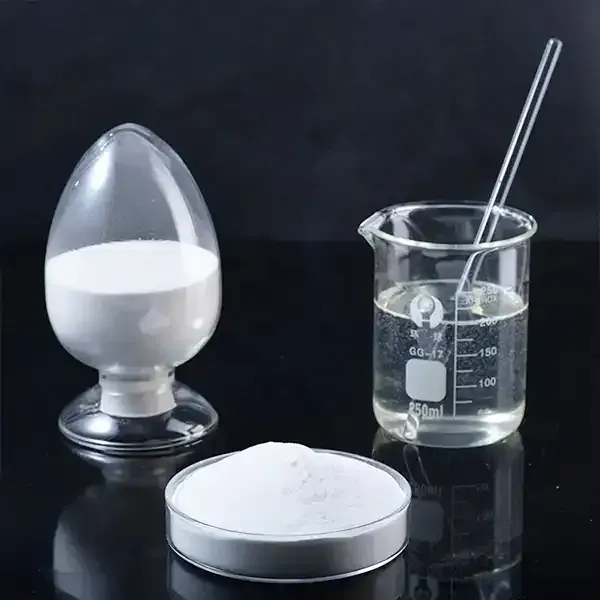Hydroxyethyl Cellulose An Overview of Properties and Applications
Hydroxyethyl cellulose (HEC) is a versatile, non-ionic, water-soluble polymer derived from cellulose, a natural polysaccharide that forms the structural component of plant cell walls. HEC is synthesized through the reaction of cellulose with ethylene oxide, resulting in a modified cellulose that retains many properties of the original material while gaining new characteristics. Its unique structure allows HEC to play a vital role in various industries, including pharmaceuticals, cosmetics, food, and construction.
Chemical Properties and Structure
Hydroxyethyl cellulose is characterized by its high molecular weight, which can vary depending on the degree of substitution and the method of synthesis. The polymer consists of hydroxyethyl groups attached to the cellulose backbone, enhancing its solubility in water and providing improved thickening properties. The degree of substitution, which refers to the average number of hydroxyethyl groups per glucose unit in the cellulose polymer, can influence the viscosity, solubility, and gel-forming capabilities of HEC.
In aqueous solutions, HEC exhibits pseudoplastic behavior, meaning its viscosity decreases under shear stress, a property that is particularly beneficial for applications requiring easy flow and spreadability, such as in adhesives and paints. Additionally, HEC is resistant to temperature variations and maintains its functional properties in a wide range of pH levels, making it suitable for diverse formulations.
Pharmaceutical Applications
In the pharmaceutical industry, hydroxyethyl cellulose is widely used as a binder, thickening agent, and stabilizer in various formulations, including gels, creams, and suspensions
. Its high viscosity and ability to improve the texture of formulations help ensure uniform distribution of active ingredients, which is crucial for the efficacy of many medications. HEC is also employed in controlled-release drug formulations, where it acts as a matrix to control the release rate of active compounds, thereby enhancing therapeutic outcomes.Moreover, HEC is often utilized in ophthalmic solutions due to its lubricating properties, which help provide relief for dry eyes. Its biocompatibility and non-irritating nature make it an ideal choice for sensitive applications, further solidifying its role in modern pharmacy.
Cosmetic and Personal Care Applications
hydroxyethyl cellulose

In the cosmetics industry, hydroxyethyl cellulose serves as a thickening and emulsifying agent in a variety of products, including lotions, shampoos, and gels. It enhances the texture and stability of formulations, ensuring a desirable sensory experience for consumers. Additionally, HEC's ability to retain moisture in formulations contributes to skin hydration, making it a popular ingredient in skincare products.
Another notable application of HEC in cosmetics is its use in hair styling products. The polymer helps to create films that provide hold and shine, allowing for versatile styling options without weighing down the hair. HEC is also valued for its ability to disperse pigments in makeup formulations, leading to a more even application and improved longevity.
Food Industry Applications
Hydroxyethyl cellulose is recognized as a food additive and is utilized in various food products as a thickener, stabilizer, and emulsifier. It enhances the texture of sauces, dressings, and desserts, providing a pleasing mouthfeel and preventing ingredient separation. Its ability to retain moisture is particularly beneficial in baked goods and processed foods, contributing to shelf stability and improved sensory qualities.
Construction and Building Materials
In the construction industry, hydroxyethyl cellulose is used as a thickening agent in cement-based products, plaster, and tile adhesives. It improves the workability of mixtures, allowing for better adhesion and easier application. Additionally, HEC enhances the water retention of mortars, which is essential for achieving optimal curing and durability of finished structures.
Conclusion
Hydroxyethyl cellulose is a multifunctional polymer with numerous applications across various industries. Its unique properties, including water solubility, thickening capability, and biocompatibility, make it an essential ingredient in pharmaceutical, cosmetic, food, and construction products. As research continues to explore its potential, HEC is expected to remain a key component in many innovative formulations, demonstrating the ever-evolving role of natural polymers in modern technology.
-
Rdp Powder: Key Considerations for Wholesalers in the Building Materials IndustryNewsJul.08,2025
-
Key Considerations for Wholesalers: Navigating the World of Hpmc - Based ProductsNewsJul.08,2025
-
Hpmc Detergent: Key Considerations for WholesalersNewsJul.08,2025
-
Key Considerations for Wholesalers: China Hpmc For Tile Adhesive, Coating Additives, Concrete Additives, and MoreNewsJul.08,2025
-
Crucial Considerations for Wholesalers: Navigating the World of Construction MaterialsNewsJul.08,2025
-
Key Considerations for Wholesalers Sourcing Additive For Cement, Additive For Concrete, Additive For Putty from Additive Manufacturer Shijiazhuang Gaocheng District Yongfeng Cellulose Co., Ltd.NewsJul.08,2025




